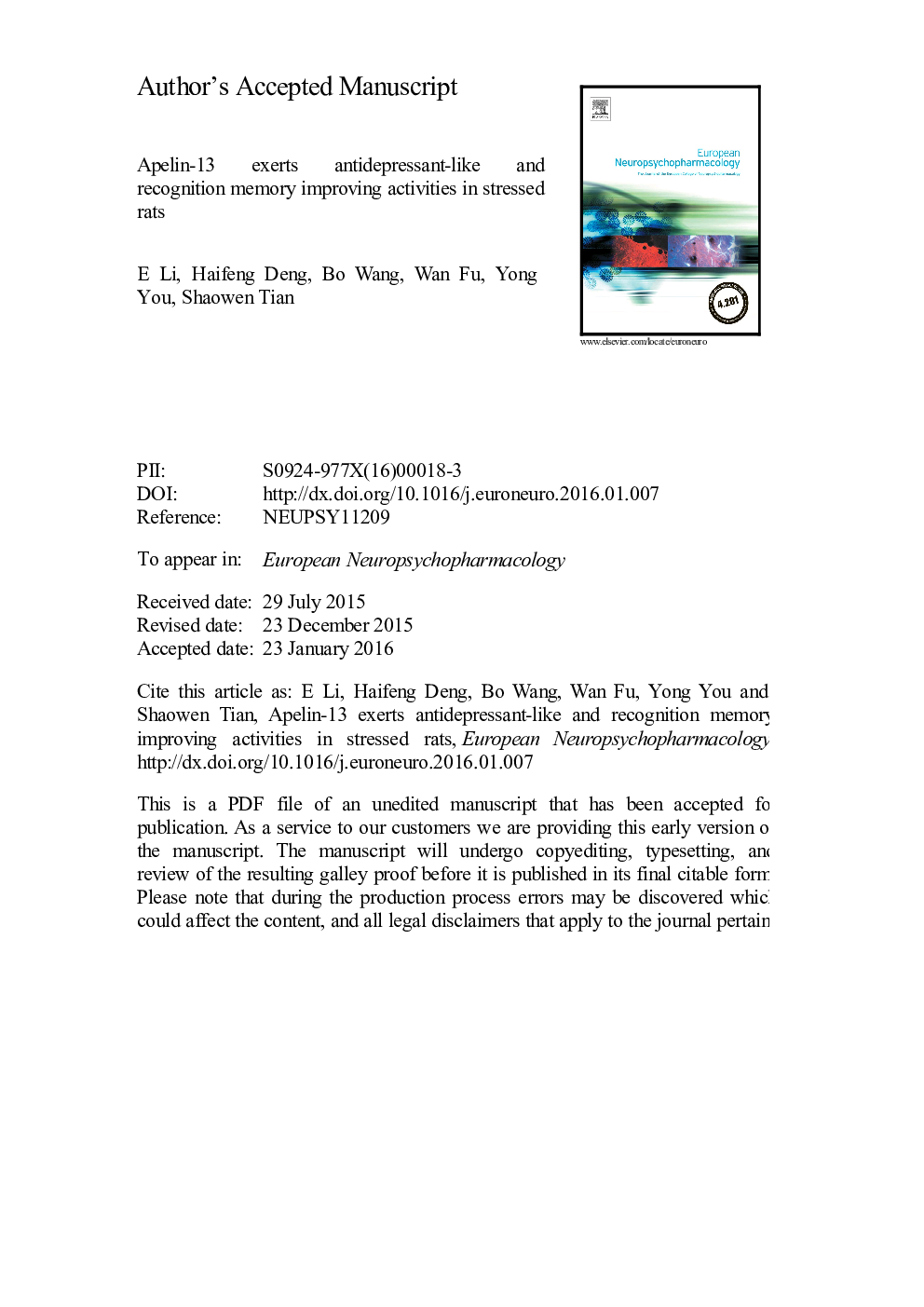| Article ID | Journal | Published Year | Pages | File Type |
|---|---|---|---|---|
| 10298590 | European Neuropsychopharmacology | 2016 | 22 Pages |
Abstract
Apelin is the endogenous ligand for the G-protein-coupled receptor (APJ). The localization of APJ in limbic structures suggests a potential role for apelin in emotional processes. However, the role of apelin in the regulation of stress-induced responses such as depression and memory impairment is largely unknown. In the present study, we evaluated the role of apelin-13 in the regulation of stress-induced depression and memory impairment in rats. We report that repeated intracerebroventricular injections of apelin-13 reversed behavioral despair (immobility) in the forced swim (FS) test, a model widely used for the selection of new antidepressant agents. Apelin-13 also reversed behavioral deficits (escape failure) in the learned helplessness test. The magnitude of the antiimmobility and anti-escape failure effects of apelin-13 was comparable to that of imipramine, a classic antidepressant used as a positive control. Rats exposed to FS stress showed memory performance impairment in the novel object recognition test, and this impairment was improved by apelin-13 treatment. Apelin-13 did not affect recognition memory performance in non-stressed rats. Furthermore, the pretreatment of LY294002 (PI3K inhibitors) or PD98059 (ERK1/2 inhibitor) blocked apelin-13-mediated activities in FS-stressed rats. These findings suggest that apelin-13 exerts antidepressant-like and recognition memory improving activities through activating PI3K and ERK1/2 signaling pathways in stressed rats.
Related Topics
Life Sciences
Neuroscience
Biological Psychiatry
Authors
E. Li, Haifeng Deng, Bo Wang, Wan Fu, Yong You, Shaowen Tian,
